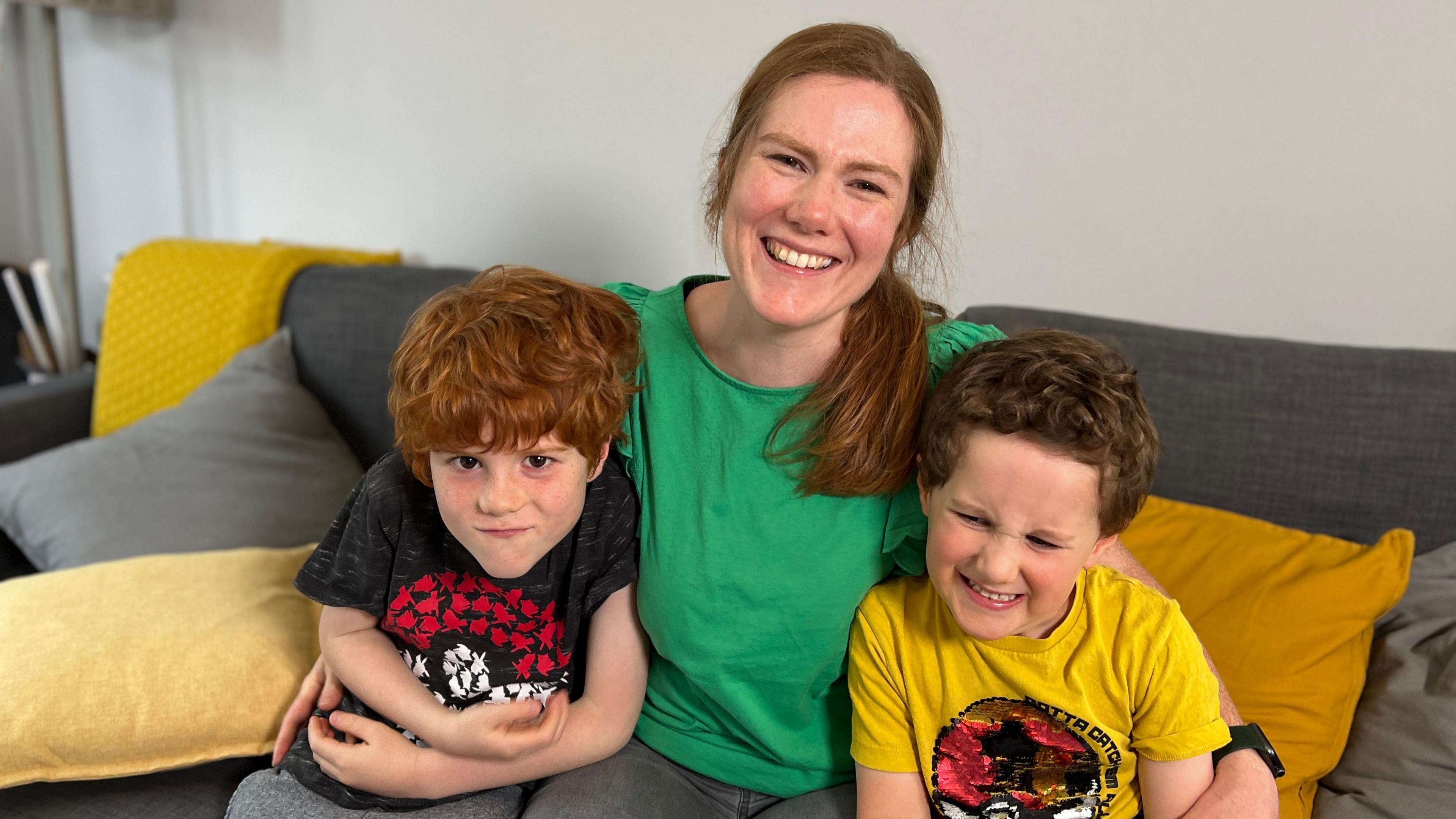Can teacher shortages be solved by attracting career changers?

Amelia Joicey decided to switch from a career in libraries and museums
- Published
The North East has seen the biggest percentage fall in trainee teachers in England, with numbers down by 56%, external over the past five years. But, according to government data, external, the over-40s are the largest growing trainee group for the third year running. Could older teachers be the answer to shortages?
The principal of Duke's secondary school in Ashington, Northumberland, Russ Atkinson, said recruiting teachers was "quite tough in all honesty".
"We struggle to get a decent field for any job adverts we put out," he said. "Sometimes we struggle to get any at all."
Schools across the North East say it is getting harder to find teachers and in nearly half of the region's local authorities, overall numbers have reduced in the past five years.
Darlington has seen a 12% reduction and, in places like Redcar, Hartlepool and North Tyneside, numbers have fallen by up to 7%.
Lucy Fenny spent 12 years in primary schools on Teesside and said she "loved every second of the teaching".
"But it became less about the children and more about league tables, exam results, statistics," she said.

Lucy Fenny said she had "no regrets" quitting teaching to set up her own beauty salon.
Frequently working extra hours and being asked to take on more responsibilities "just got too much", Ms Fenny said.
"The expectations were far too high."
The 34-year-old recently decided to set up her own beauty business from her home in Stokesley and said she had no regrets, despite it being "petrifying giving up a pension, sick pay, holiday pay, all of that".
The National Education Union said increased workload ranked as the main reason one in three teachers considered quitting.
Andrew Hutchinson, a teacher with 15 years of experience in secondary schools, found it started to affect his mental health.
"You never had any time where you were having a normal week," he said.
"Everything was a high pressure week, high pressure situation."
Faced with increasing class sizes and behavioural issues, the 39-year-old, from North Tyneside, left teaching to work for the civil service.
"My wife says I'm very much a different person now," he said.
He said he could now use his free time "to actually be with my family, instead of collapsing in exhaustion".
The charity Now Teach, external, set up by former Financial Times columnist Lucy Kellaway after she trained as a teacher herself at the age of 58, said one solution lay in career changers.
The government should put more effort into targeting older people who are looking to do something different later in life, she said.

Former journalist Lucy Kellaway founded the charity Now Teach to encourage older people into teaching careers
"Traditionally we have tried to recruit teachers straight out of education themselves," Ms Kellaway said.
"But our working lives are now so long that one career isn't enough, and we've neglected that older slice."
She said the government should capitalise on the over-40s being the fastest growing sector of new teachers.
"It would be terribly powerful if the government was talking up older people," she said.

Amelia Joicey said her family was supportive of her decision to teach
Government figures show the over-40s are now the largest growing trainee group for the third year running.
Among them is Amelia Joicey, who decided to train as a teacher in Ashington after a long career in museums and libraries.
"Covid really made me re-assess my priorities," she said. "It was quite a brave, nervous thing but luckily my family was supportive."
She said the job could be exhausting, but she felt she had "more energy than I would have being in the office all day" and had no regrets.
"It's really full-on. There's never a dull moment," she said. "The kids I've worked with here are some of the most lovely people I've met ever in my life and it's really inspiring."
Follow BBC North East on X, external, Facebook, external, Nextdoor and Instagram, external.
Get in touch
Do you have a story suggestion for BBC North East & Cumbria?
- Published13 March

- Published25 July

- Published2 August 2024
